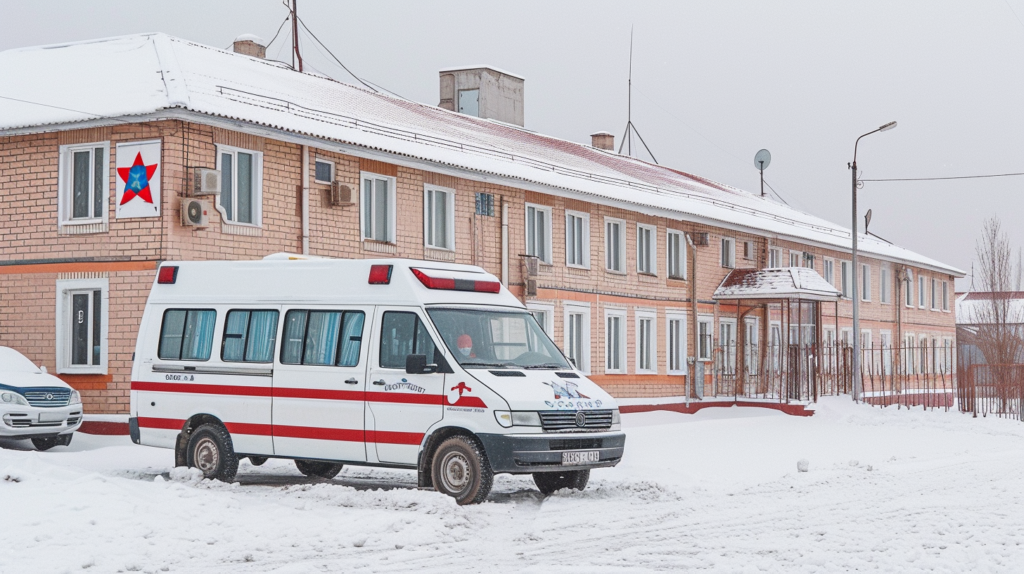Kazakhstan recently introduced a mandatory health insurance system, marking a significant policy shift designed to improve healthcare accessibility, equity, cost, and quality nationwide.
Despite initial skepticism, recent statistics from the Ministry of Health show clear improvements.
A comprehensive review reveals that the insurance system has enhanced healthcare in Kazakhstan in terms of expenditure, services, provider quality, and outcomes.

Surge in Government Healthcare Expenditures
Kazakhstan’s introduction of mandatory health insurance significantly shifted its healthcare policy, aiming to enhance access, equity, affordability, and quality. Since its inception, healthcare spending as a percentage of GDP rose from 2.8% to 3.7% between 2018 and 2022.
The Ministry has set a bold goal to reach a 5% GDP expenditure by 2027, potentially ranking Kazakhstan among the world’s leading healthcare spenders.
Increased Investment Fuels Improvements in:
- Infrastructure: New clinics, hospital renovations, and advanced medical equipment.
- Training: Enhancing medical expertise and skills.
- Technology: Adoption of cutting-edge diagnostics and treatment tools.
Such financial commitment is designed to boost health outcomes significantly, as evidenced by:
- Lower mortality rates
- Reduced infection rates
- Decreased chronic disease incidence
- Improved patient satisfaction
Nonetheless, Kazakhstan emphasizes the importance of responsible spending, with:
- Rigorous cost-efficiency evaluations
- Stringent transparency regulations
- Frequent audits to ensure financial prudence.
Driving Improvements with Increased Investments
Kazakhstan’s healthcare reform, highlighted by the shift to a mandatory health insurance model, has dramatically improved the sector’s funding and capabilities. Between 2018 and 2022, the total financing for healthcare leaped from 1.1 trillion KZT to 2.8 trillion KZT, underscoring a significant enhancement in system capacity and service delivery.
Key Developments Include:
- Infrastructure Boost: Introduction of 5 specialty hospitals and upgrades to 200 regional clinics.
- Expanded Medical Services: Increases of 30% in outpatient treatments and 50% in hospital admissions.
- Workforce Growth: The hiring of 7,500 additional nurses and 1,200 more primary care doctors.
These developments have paved the way for:
- Enhanced Quality of Care: Offering more comprehensive, safer, and higher-quality medical services.
- Preventative Care Initiatives: Launching programs aimed at early disease detection, managing disease progression, and addressing the rise in chronic conditions such as cardiovascular diseases, diabetes, and cancer.
Kazakhstan’s approach emphasizes sustainability and efficiency in healthcare spending, ensuring that the investments translate into tangible health benefits while maintaining fiscal responsibility.

Making Healthcare More Affordable: Reduction in Out-of-Pocket Costs
Kazakhstan’s healthcare reform through mandatory health insurance has significantly reduced out-of-pocket medical expenses, from 34% in 2018 to 31% in 2022. This reduction eases the financial burden on citizens, moving closer to universal health coverage and ensuring care for all without financial distress.
Key Achievements in Reducing Financial Burden:
- Expanded Insurance Coverage: A broader spectrum of services now falls under insurance, including:
- Preventative screenings
- Critical procedures
- Chronic treatments
- Higher Reimbursement Rates: Insurance payouts have improved, jumping from an average of 35% to 47%, making treatments more affordable for patients.
These improvements highlight Kazakhstan’s commitment to making healthcare accessible and affordable, aiming for a future where every citizen can access necessary medical care without suffering financial hardship.
Enhanced Access to Specialized and High-Tech Care
Kazakhstan’s healthcare financing reforms have significantly increased insurance funding for day hospitals, doubling the investment and facilitating many hospital-replacement services. These services enable faster patient discharge and lower associated risks at both public and private facilities.
Delivering Significant Healthcare Enhancements:
- Increased Funding for Complex Procedures: Funding for complex and expensive operations, such as open-heart surgeries, cancer tumor excisions, and organ transplants, has seen a 2.5-fold increase.
- Expanded Access to Specialized Rehabilitation Services: Patients now have broader access to specialized rehabilitation services for cardiovascular, neurological, and cancer recovery, as well as injury rehabilitation.
These capacity upgrades support the delivery of:
- Convenient Care: Streamlining the entire care journey for patients.
- Advanced Care: Offering cutting-edge treatments and procedures.
- Holistic Care: Providing comprehensive, tailored preventative care.
As a result of these strategic enhancements, Kazakhstan’s national health profile is evolving, with a focus shifting from infectious diseases to managing long-term chronic conditions. This shift underscores the growing importance of rehabilitation services and lifestyle change programs in the country’s healthcare landscape.

Doubling Medical Service Providers to Expand System Capacity
Kazakhstan’s healthcare sector has experienced a remarkable expansion, with the number of medical providers doubling from 1,000 to 2,000. Notably, nearly 50% of these providers are now private organizations, contributing to a diverse and competitive healthcare environment.
Advantages of a Diversified Provider Network:
- Increased Competition: Spurs quality improvements across the healthcare spectrum.
- Innovation: Encourages the adoption of new healthcare technologies and practices, such as telehealth services and digital health records.
- Enhanced Accessibility: Makes healthcare more accessible, reducing wait times and providing patients with more choices.
This growth and modernization are crucial in ensuring the healthcare supply adequately meets the demand in both rural and urban areas, reflecting Kazakhstan’s commitment to improving healthcare access and quality for all its citizens.
Promising Early Outcomes and the Path Forward
Despite being in its early stages, Kazakhstan’s compulsory medical insurance system has swiftly transformed the nation’s healthcare landscape, enhancing everything from financial investment to patient outcomes.
If this positive trend persists and is supported by emerging data, Kazakhstan is on course to establish an exemplary healthcare model. This model could serve as a benchmark for both developed and developing countries aiming for universal health coverage.
Achieving this goal will necessitate a steadfast commitment to efficiency, accountability, transparency, and the integration of compassion into patient care philosophies.


